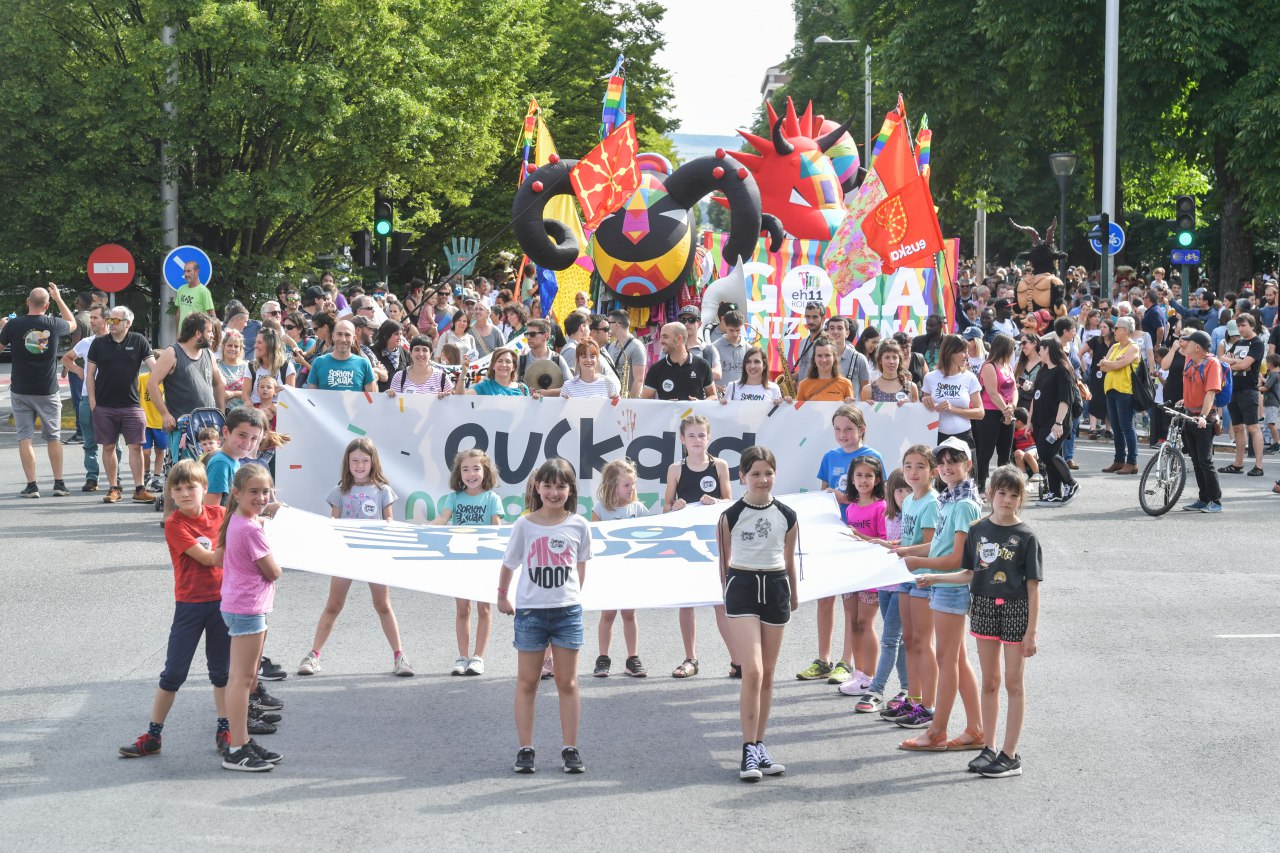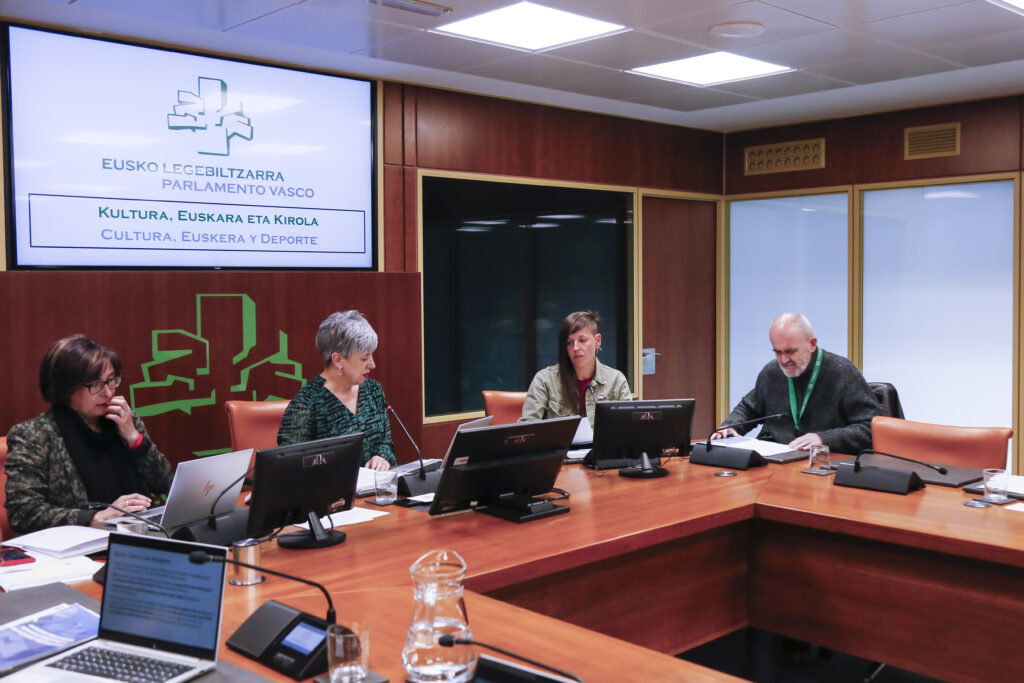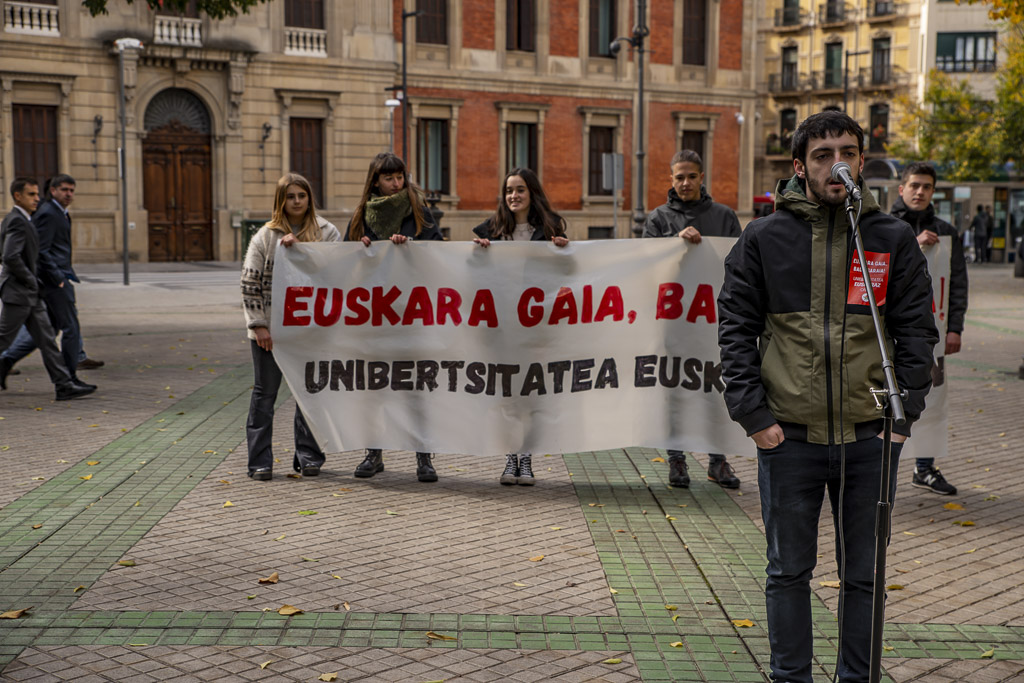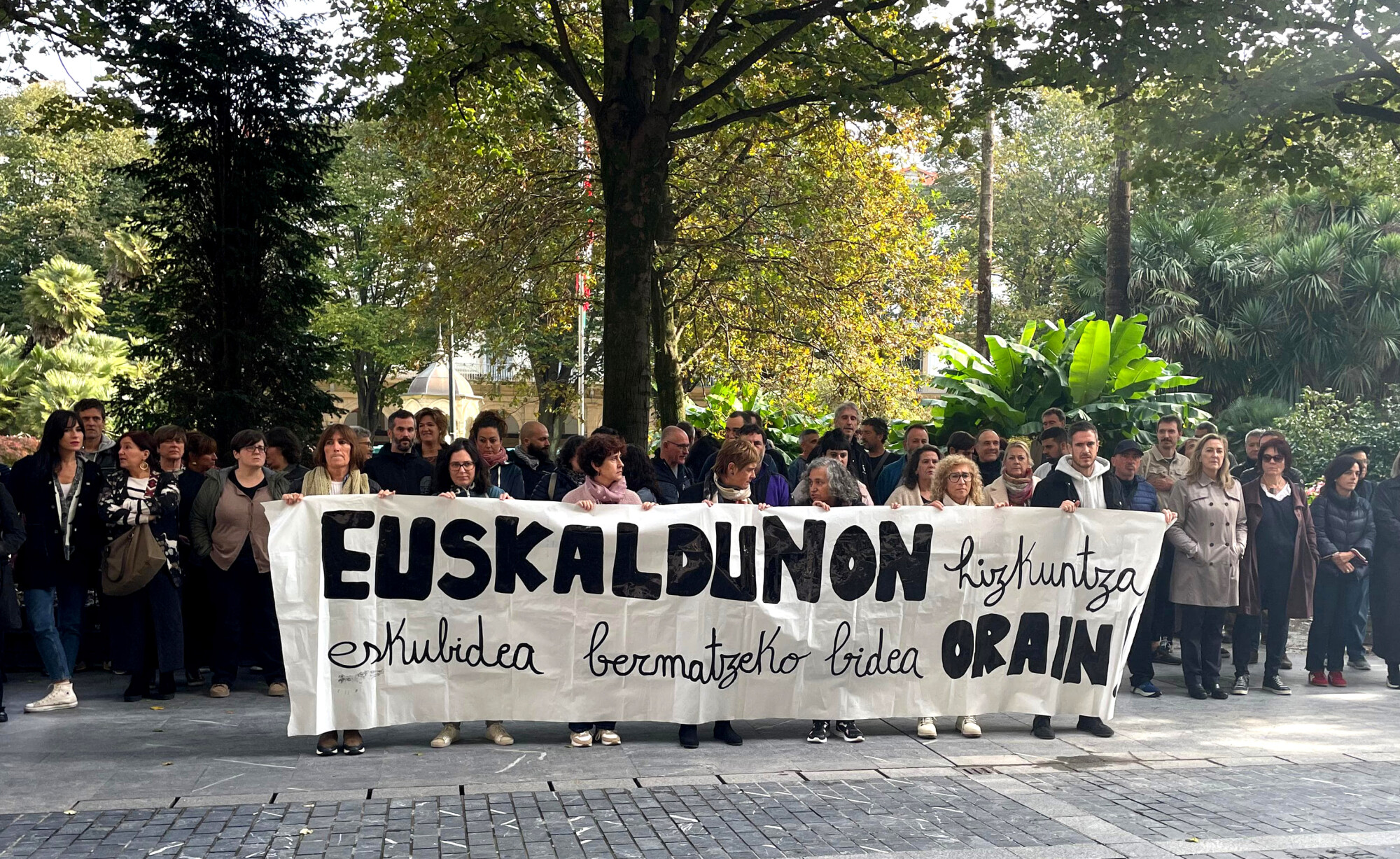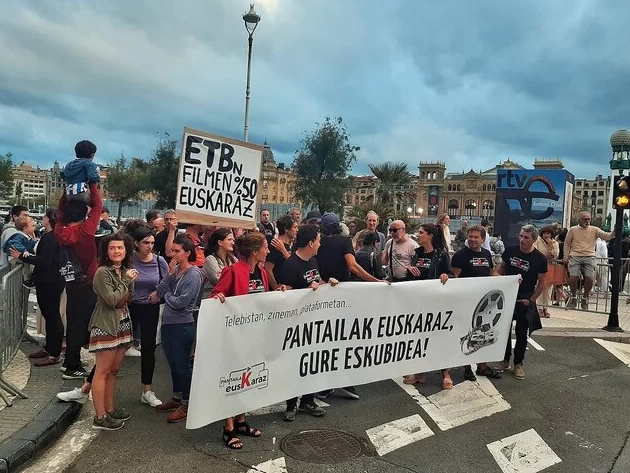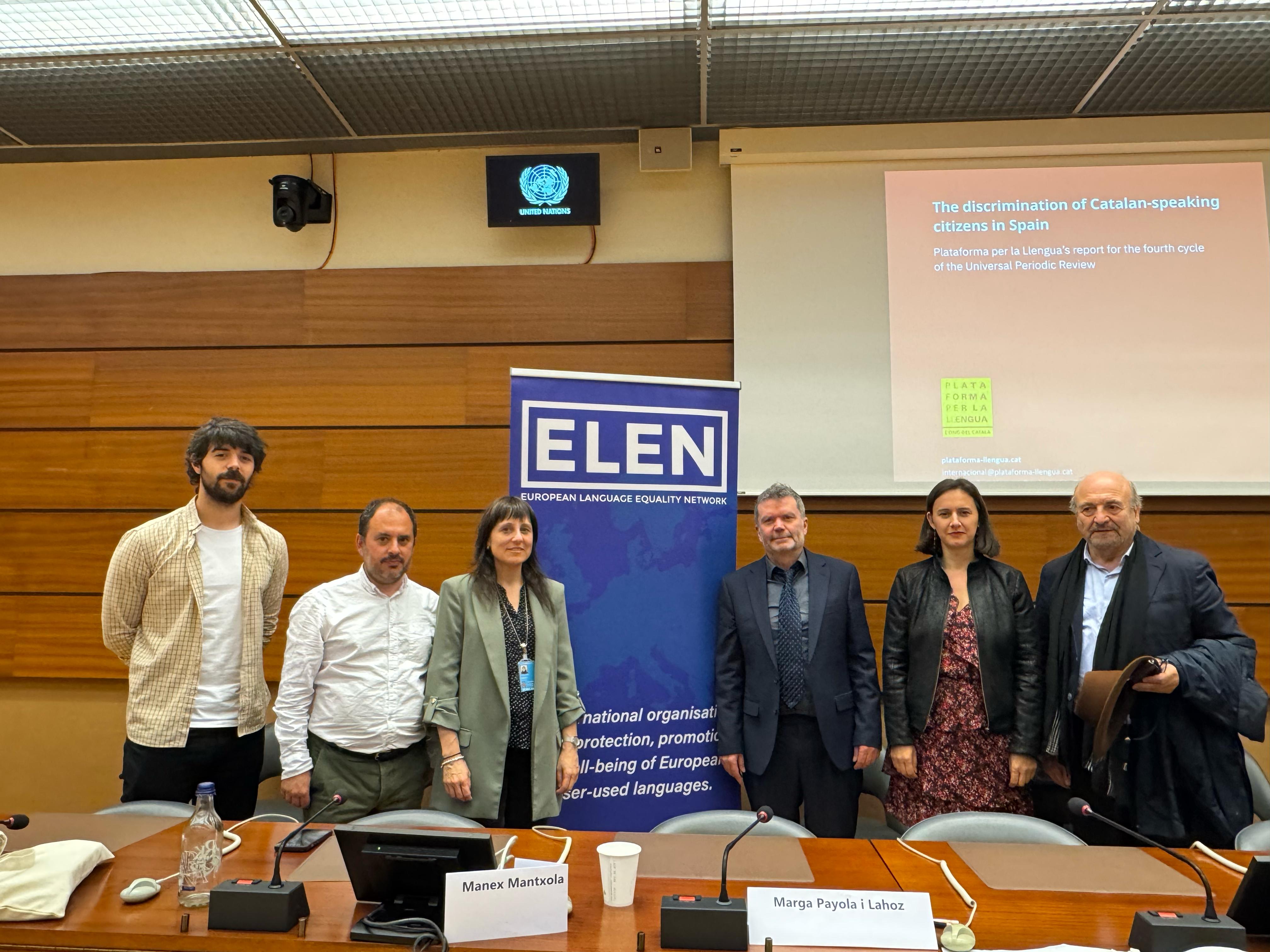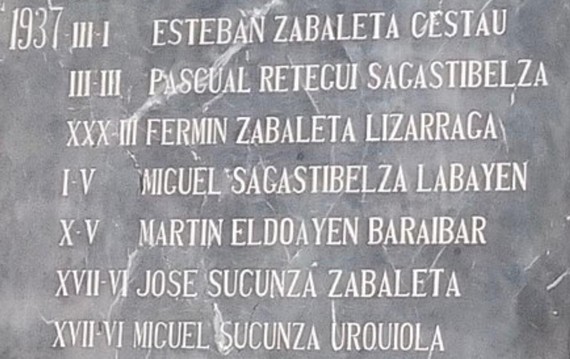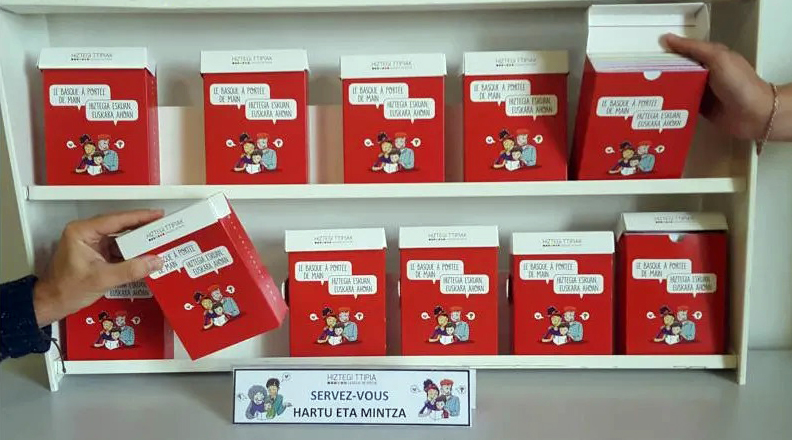On the proposal of Olatz Altuna
- Olatz Altuna has been published an article with the motto Empower, renew, live in the only 100% Basque newspaper. To the interesting and substantial article, I will dare to make a few observations, but, if it is not an extravagance.
Agree on the principles:
Olatz referred to the consensus of principles as a priority “based on sociolinguistic reality and a forward-looking goal”, as well as the proposal of “three general principles”.
1) “Basque is the native language of the Basque Country: if it is used anywhere it will be used here and it is only up to us to maintain it”. Okay, I would add the inherent “and the original.”
2) “Today we live in a multilingual society, not a bilingual society.” I couldn't agree more. On the one hand, because there have always been (or have been) more than two languages alive in the Basque Country, if not with the current prosperity. On the other hand, in practice, it goes beyond private practices, because our society is Spanish on one side and French on the other. In the South there are still some bilingual villages, which we call “hubs”; in the North... I don’t know.
Otherwise I would say:
“Today we live in a semi-detached society. Social life takes place in Spanish mainly in the South and in French due to the abundance of dozens of other language speakers in the North. The Basque language remains healthy in certain regions, but it can hardly be heard in the capitals and in the areas below them.”
3) “The Basque language needs official and legal protection.” All right, all right. I would only add more strength than the current ones.
I would add three more principles:
4) The “Basques” are Basque speakers. The Basque people have lived in the Basque Country for a long time and consider themselves to be Basque citizens, whether they are Basque or not.
5) The Basques have been marginalized for centuries because our language, Basque, has been marginalized, underestimated and banned, and is still marginalized in wider than recognized areas of the Basque Country.
6) Unionists and many patriots say that we have three languages in the Basque Country. It is advisable to finish the sentence but: “We have three Basque languages. Two, Spanish and French, imposed by the states and one, Basque original, oppressed, undervalued and, at best, second-ranked.
Status, consent, behaviour of young people
In defining the statuses of languages, we must emphasize the exclusion that we suffer, and the right of independence and priority among the official languages should be recognized to Basque.
Consensus among whom?
We need a consensus among those who are willing to guarantee the rights of those who want to live in Basque. Those who want us to remain secondary don’t have it, there’s nothing to agree on. What should we agree with those supremacists who are unwilling to guarantee human rights?
The behavior of young people will determine – not condition – the future of the Basque language to a large extent. And, as Olatz mentioned, if the sociolinguistic context does not help, they will hardly consider Basque as their usual language, if we consider that most of them have a second language –inherited from school-, as never before. If we don’t want to deceive ourselves, we have to recognize that the conditions are deplorable; that today we only offer young people the sea of childbirth and some streams in Basque. Apart from the tedious finite formal use in schools, they find a very limited offer to enjoy the Basque language. In addition to the fact that adults live mainly in Basque, we have also given back to young people the responsibility of moving the Basque language forward.
Although the evaluation of whether or not the renewed diagnoses come to us periodically, the main public institutions rarely undertake solid initiatives, and those that arise are born from the knowledge of the municipalities and communities (Lasarte-Oria, Agurain, Bermeo, San Sebastián, Oarsoaldea, UEMA...), rather than from those with the most resources and support (Basque Government, Bilbao, Provincial Councils).
Unless the dialect of social initiative is awakened and unleashed, which does not seem to be able to emerge from a twisted rotunda, rather than at the crossroads, the representation of a prosperous future gives jobs, since the main actors, the nationalist parties and unions, are not oriented towards language in general.
Well, the Unionist parties and unions do. They are attentive to the Basque language, but to shoot.
Hoping that we'll find our way out of the Rotonda...
(Jonjo Agirre Martínez is a language standardization technician at the Basque Government)
Euskaraldiaren atarian, beste behin, Pantailaldia egingo da. Maiatzaren 6tik 15era iraungo du, eta euskarazko ikus-entzunezkoen kontsumoa sustatzea izango da helburua.
Baina non gaude, non dago euskara ikus-entzunezkoen mundu zabalean, nora goaz? Zein hutsune, zein erronka... [+]









